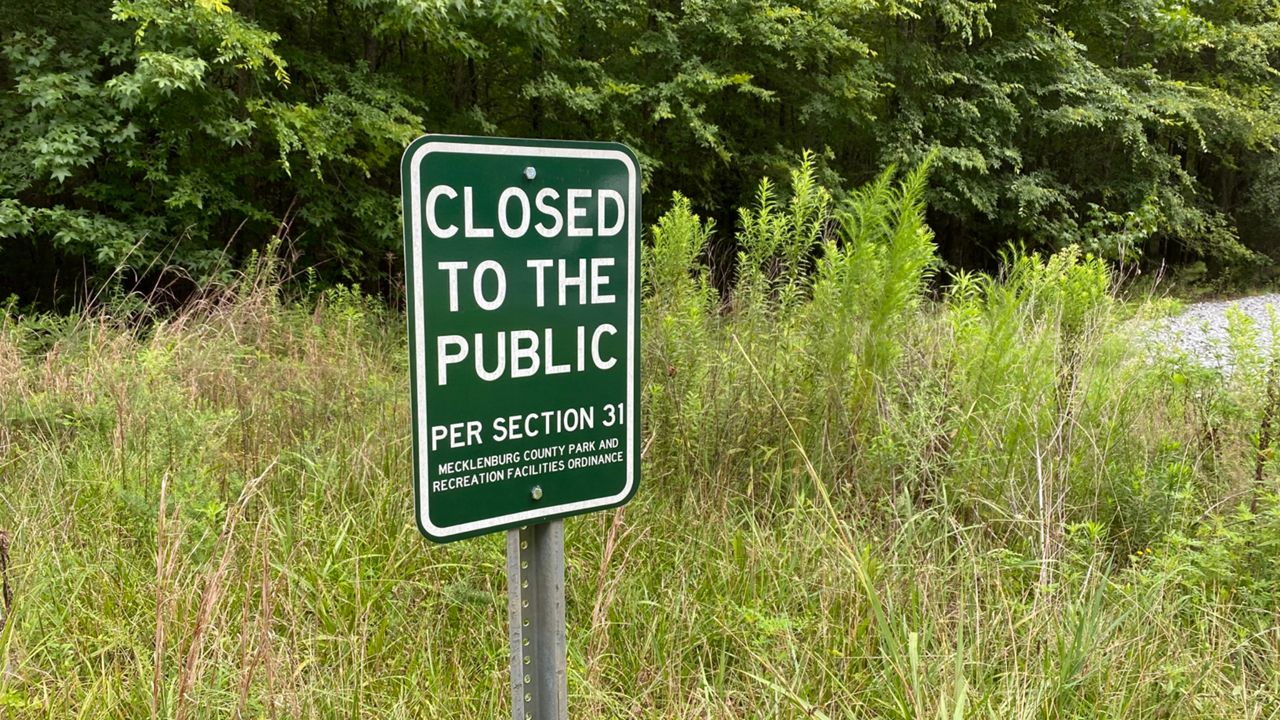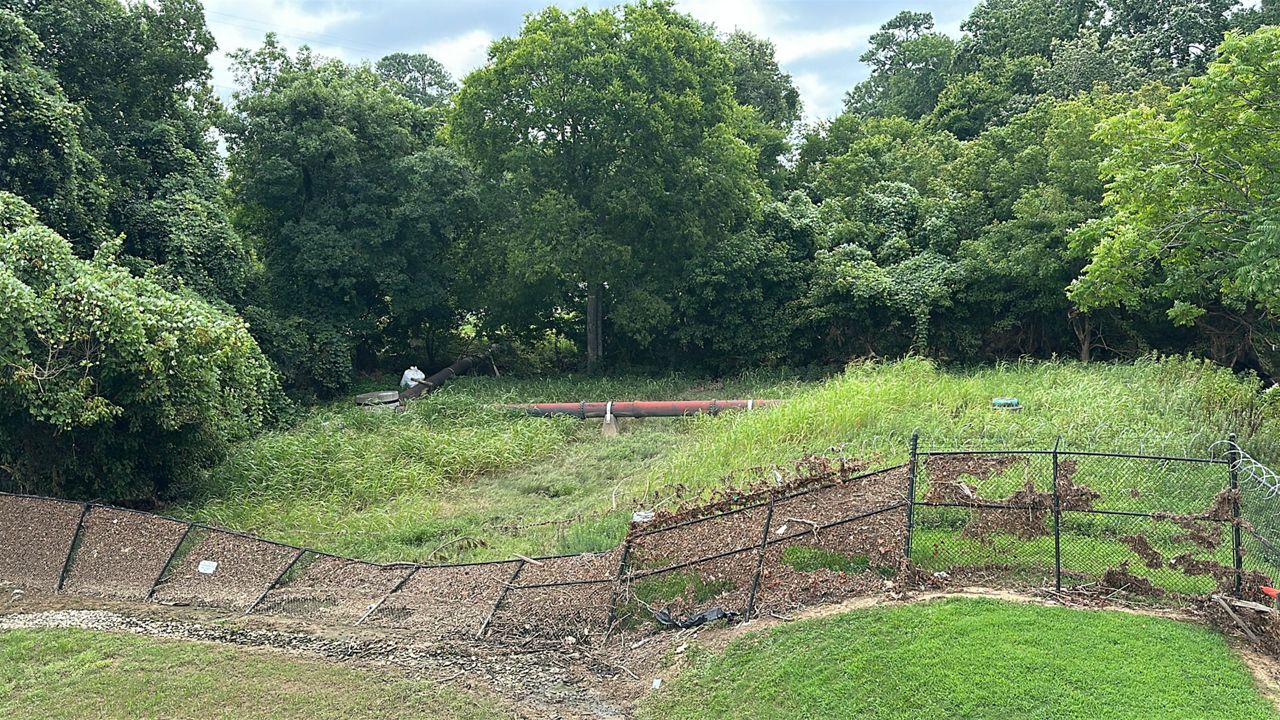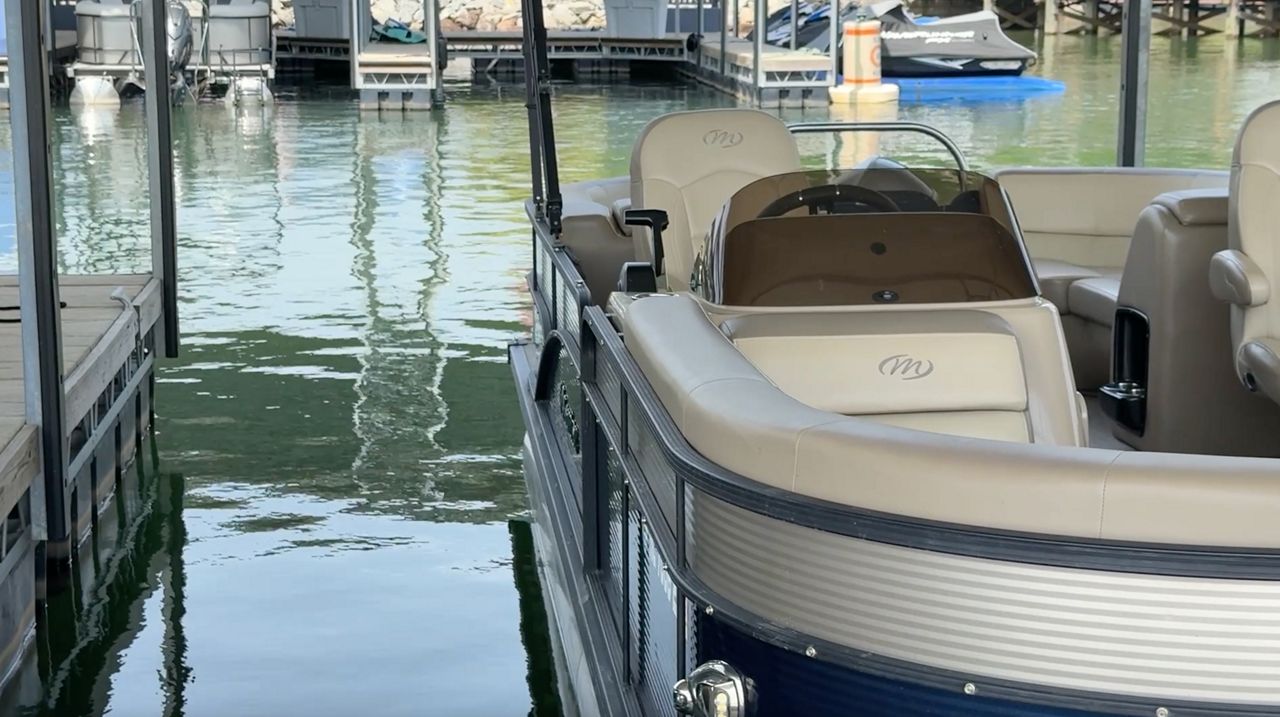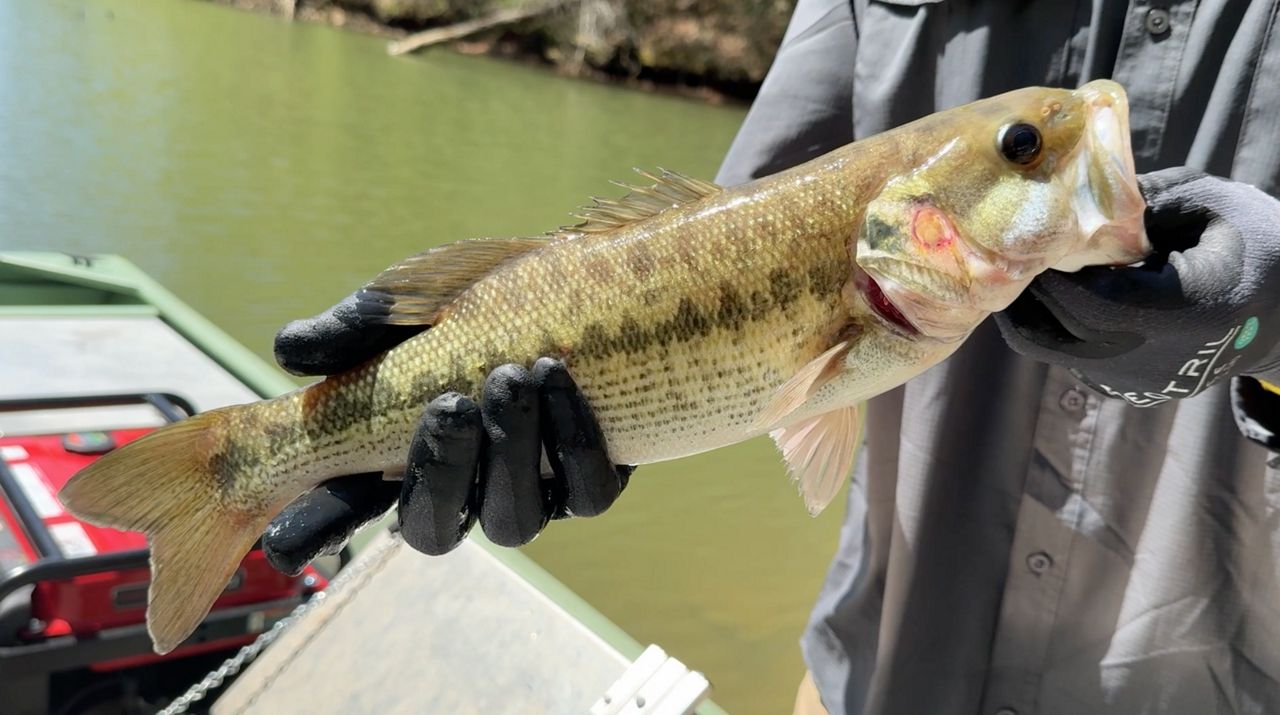HUNTERSVILLE, N.C. — The Oehler Nature Preserve sits on a clean, winding two-lane road just north of Charlotte.
Subdivisions with new single-family homes surround one side. The North Prong Clark Creek runs along the back of the wooded preserves. Along the road, there are signs of construction. Orange cones and flags, some equipment is visible around the gravel access roads. Signs along the front of the preserve read: “Closed to the public.”
This is the site of the largest onshore fuel spill in United States history. State environmental officials say a fuel pipeline leaked an estimated 2 million gallons of fuel into the preserve.
The leak went unchecked for more than two weeks before two teenagers found it while riding ATVs in the preserve in August 2020, according to the North Carolina Department of Environmental Quality.
Two million gallons of gas leaked from the pipeline from July 27 that year until Aug. 14, according to Colonial’s estimates, based on what the company put in the pipe and what they expected to get back out on the other side. What’s not clear is how the company itself never found the leak.
Two years after the leak was discovered, the preserve remains closed, and workers are still there trying to clean up the fuel that leaked from the Colonial pipeline. The pipeline runs from the Gulf of Mexico, across the Southeast and up the Eastern seaboard. This is the same pipeline that hackers shut down last summer, sending gas prices spiking across the region.
When a Spectrum News 1 reporter showed up at the Oehler Nature Preserve recently, a worker with the cleanup company quickly asked the reporter to leave. But it appears crews are actively working to clean the site.
“We are working in coordination with NCDEQ and local officials to ensure that we are doing everything we can to protect the health and safety of the public,” Colonial spokeswoman Meredith Stone said in an email.
“The area we are currently working to remediate will open when work is complete, however, we will remain on site for as long as it takes,” she said. She did not say when they expect that work would finish up.
Officials at DEQ said it would be up to Mecklenburg County to decide when to reopen the nature preserve. The county said even before the fuel spill, there were no trails or parking at the nature preserve.
"Prior to the Colonial release, Oehler was closed to the public to help control illegal hunting and ATV use," county spokeswoman Rebecca Carter said.
She said the county Park and Recreation Department plans to "re-evaluate the use of Oehler for public use once we are confident that the Colonial clean up operations will no longer need to expand."
"Potential future uses for the property will only include nature/walking/hiking trails and a future segment to the N. Prong Clarke Creek Greenway trail which is greater than five years out," Carter said in an email.
A spokeswoman for DEQ said the department “does not have an estimated timeline for the cleanup process.” But a new consent order between the state and Colonial, signed by a Mecklenburg County judge last month, outlines what the company needs to do “to create a comprehensive cleanup strategy.”
State environmental officials sued Colonial over the spill in November 2021. The company and DEQ settled that lawsuit with a consent order in July.
That order, agreed to by Colonial and state environmental officials, says the company has to pay a $4.5 million fine for the spill, $250,000 in investigation costs and clean up the fuel at the nature preserve.
It was after the company and the state agreed to settle the lawsuit that the company released its new estimate on just how much fuel leaked out of the pipeline: two million gallons.
Even before Colonial and the state signed the consent order, the company was filing monthly and annual reports on how the cleanup is progressing.
The latest report shows the company has cleaned up almost 1.4 million gallons. That means there’s still an estimated 600,000 gallons in the ground.
Last fall, the company reported removing about 1,000 gallons of fuel a day from the site. The latest report available on the DEQ site, dated June 30, shows the company is removing roughly between 150 to 350 gallons of fuel per day, plus at least 15,000 gallons of water that came in contact with the fuel.
Assuming all 600,000 gallons can be recovered and they continue to clean it up at the current rate of 300 gallons per day, it could take another four years to get it all cleaned up.
The company installed numerous wells around the site to monitor groundwater for contamination and pull fuel and contaminated water from the ground. Many of those wells are still pumping fuel out of the ground.
The good news is, testing from those wells show the fuel does not appear to have made it to nearby Lake Norman, part of the Catawba River watershed that provides drinking water for Charlotte.
Hundreds of thousands of gallons in fuel remain in the ground in Mecklenburg County’s Oehler Nature Preserve. Neither state environmental officials nor Colonial know how long it will take to get it cleaned up.
In the meantime, the preserve remains closed to the public, and Colonial will continue working to get the site cleaned up.









)